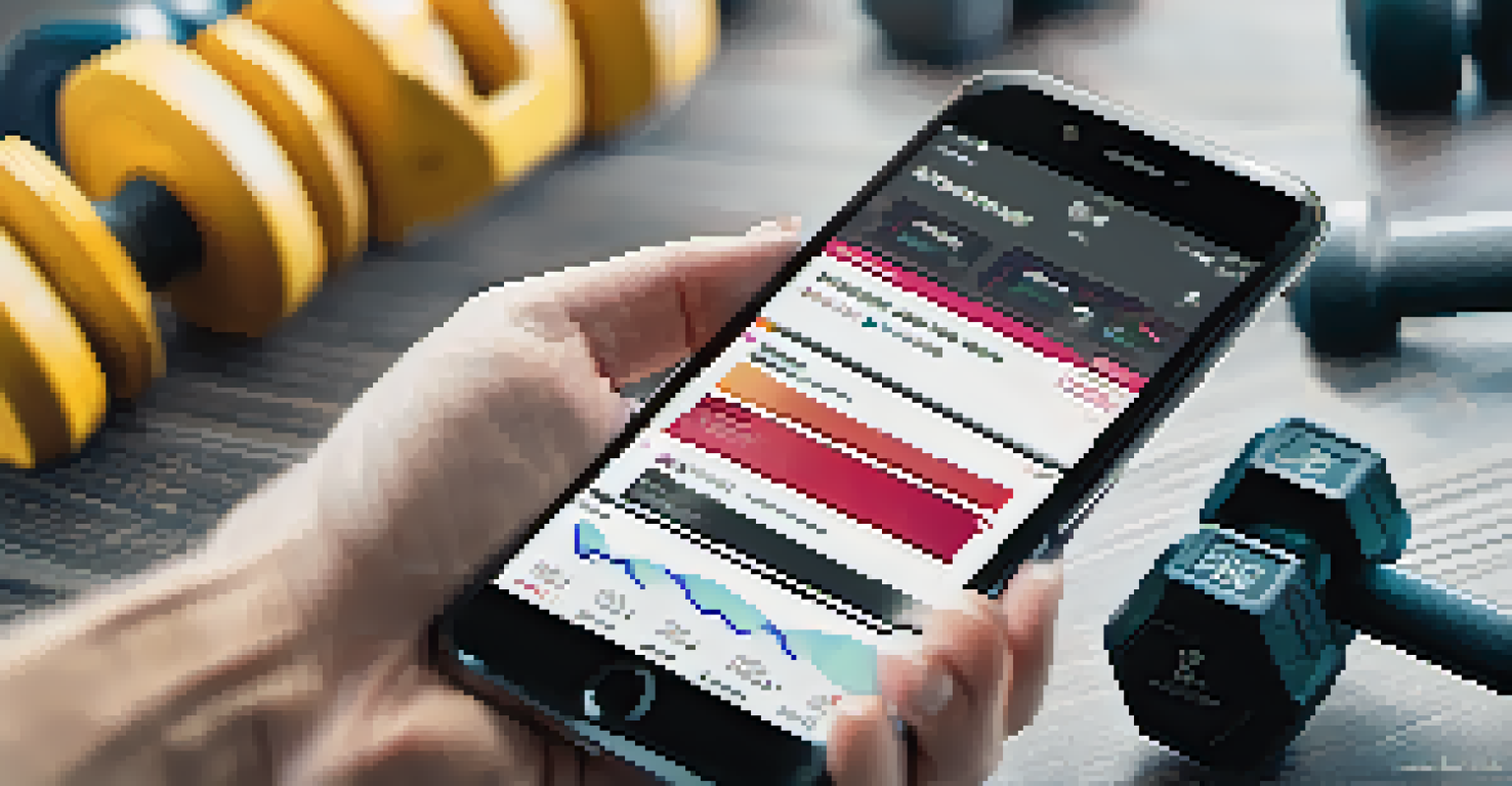Harnessing the Power of Accountability in Bodybuilding Training

Understanding Accountability in Bodybuilding Training
Accountability in bodybuilding refers to the practice of holding yourself responsible for your fitness goals and training routines. It’s not just about showing up to the gym; it’s about committing to your progress and ensuring you stay on track. Think of it as having a personal coach guiding you, even if that coach is your own determination.
Accountability is the glue that ties commitment to the result.
When you embrace accountability, you create a sense of ownership over your fitness journey. This might mean tracking your workouts, keeping a food diary, or sharing your goals with friends or a community. By doing so, you're not just lifting weights; you're lifting the burden of uncertainty that can come with fitness.
Ultimately, understanding accountability is the first step. It’s about recognizing that your results are a reflection of your commitment, and that you have the power to steer your goals in the right direction.
Setting Clear Goals for Accountability
To harness accountability effectively, start by setting clear and achievable goals. Instead of vague objectives like 'get fit', aim for specific targets such as 'increase my bench press by 20 pounds in three months.' Clear goals provide a roadmap for your training and help you measure progress.

When you have defined goals, it’s easier to hold yourself accountable. You can break these larger goals into smaller milestones, allowing for regular checks on your progress. Celebrate these small victories; they act as motivation to continue pushing forward.
Embrace Accountability in Fitness
Taking ownership of your bodybuilding journey through self-monitoring and goal commitment is essential for progress.
In essence, clear goals serve as both a guide and a benchmark. They help you stay focused and remind you of the commitment you've made to yourself.
The Role of a Workout Partner
Having a workout partner can significantly enhance your accountability. When you know someone is counting on you to show up for a workout, you're more likely to stick to your plan. It’s like a built-in support system cheering you on and keeping you honest.
Setting goals is the first step in turning the invisible into the visible.
A workout partner can also provide encouragement during tough sessions and help you push through those last few reps. The camaraderie that develops can make training more enjoyable, transforming what might feel like a solitary task into a shared journey.
In short, a workout buddy can help you stay accountable and motivated. Together, you can celebrate successes and navigate challenges, making the bodybuilding experience more enriching.
Utilizing Technology for Accountability
In today’s digital age, technology offers various tools to enhance accountability in bodybuilding. Fitness apps can track your workouts, monitor your diet, and remind you of your goals. This instant access to your data can foster a sense of responsibility towards your progress.
Wearable devices, like fitness trackers, can also play a significant role. By monitoring your activity levels, heart rate, and sleep patterns, they provide insights that can motivate you to stay on course. They’re like having a personal trainer on your wrist!
Set Clear, Achievable Goals
Establishing specific fitness targets helps create a roadmap for success and makes it easier to measure accomplishments.
Ultimately, technology can be a powerful ally in your accountability journey. It provides you with the feedback necessary to make informed decisions about your training and nutrition.
Creating a Supportive Community
Engaging with a community can enhance your accountability in bodybuilding. Whether it’s through social media groups, local gyms, or online forums, sharing your journey with others can create a sense of belonging. When you see others striving for similar goals, it can inspire you to stay committed.
Communities often offer encouragement, advice, and shared experiences that can be invaluable. When you’re feeling discouraged, hearing someone else's story can reignite your motivation. Plus, you might find a mentor or accountability partner within these groups.
In essence, a supportive community can provide the extra push you need. It reminds you that you’re not alone in your journey, reinforcing your commitment to your goals.
Reflecting on Progress Regularly
Regularly reflecting on your progress is a crucial aspect of maintaining accountability. Take time each week or month to assess what you’ve achieved versus your goals. This reflection allows you to see how far you’ve come and identify areas where you may need to improve.
Journaling your workouts or progress can be particularly effective. Writing down your thoughts and experiences not only provides clarity but also serves as a motivational tool when you look back at your journey. You’ll see tangible proof of your hard work.
Utilize Community and Support
Engaging with a supportive community and having a workout partner can significantly enhance motivation and accountability.
Ultimately, reflecting on your progress keeps your goals fresh in your mind. It ensures you continue to push yourself and stay accountable to the commitments you’ve made.
Adjusting Your Strategy When Necessary
Accountability also means being flexible and willing to adjust your strategy if something isn’t working. If you find that your current routine isn’t yielding the results you expected, it’s essential to reassess and modify your approach. This adaptability is key to long-term success in bodybuilding.
It’s easy to get married to a specific workout plan or diet, but the best athletes know when it’s time to pivot. Perhaps you need to incorporate more rest days, change your lifting routine, or try a different nutritional approach. Listening to your body and being open to change can make a significant difference.

In summary, adjusting your strategy when necessary is part of being accountable. It shows that you’re committed to finding what works best for you and your unique fitness journey.